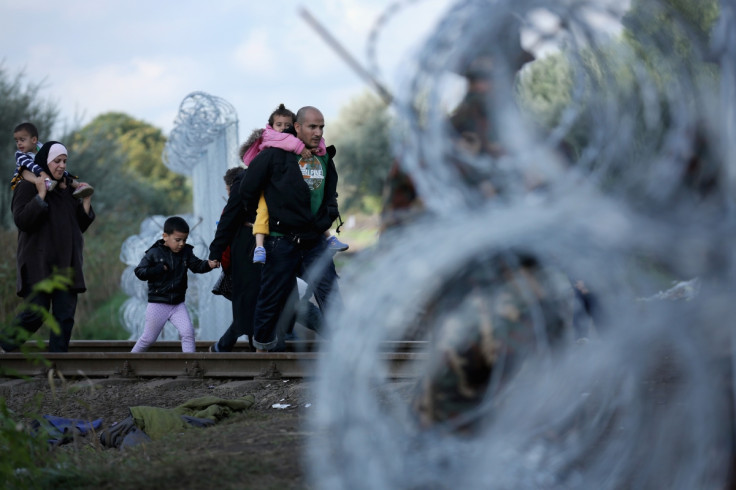Refugee crisis: Hungary arrests 60 migrants amid closure of border with Romania

Hungarian police have arrested 60 refugees since stringent new laws came into place at midnight (15 September), giving them the power to charge refugees crossing the border from Serbia. Those caught crossing razorwire fences could face a prison sentence of up to three years.
Hungary's foreign minister Peter Szijjarto has announced that the 109-mile border fence with Serbia will be extended to run along its frontier with Romania as well. The official closure of the border with Serbia blocks off a route that has brought over 160,000 refugees into northern Europe since the beginning of 2015. Crowds have started to gather at Serbian side of the border, with refugees confused and unsure about what their next move should be as Hungary says those seeking asylum from the Serbian side of the border will be automatically rejected.
Serbia's social affairs minister Aleksandar Vulin told Serbian broadcaster B92 that migrants were arriving at the border from all directions and that 1,000 were stranded there. He called on Hungary to open the border and for refugees to be allowed to seek asylum in the country. Vulin vowed that Serbia would provide refugees with food, water and transportation to temporary shelters but warned that the crisis would be impossible to solve without cooperation from Hungary. Vulin also said that Serbia had not been warned about Hungary planning to close the border, putting further strain on Serbia.
He said: "Europe has to find a solution fast before the situation escalates even further. This border crossing, one of the main ones in Europe, has to remain open."
A delegation from Amnesty International visiting the refugee camps in Hungary in early September described the treatment of refugees by Hungary as "appalling". Amnesty's Hungary researcher, Barbora Cernusakova, said that Hungary had been "completely unprepared" for the refugee influx and that authorities were handing out little to no information.
© Copyright IBTimes 2025. All rights reserved.






















